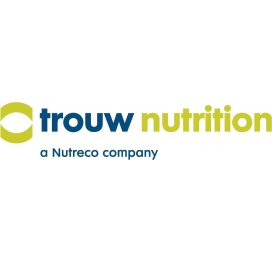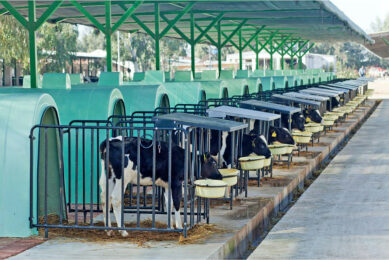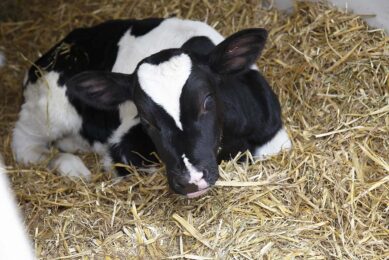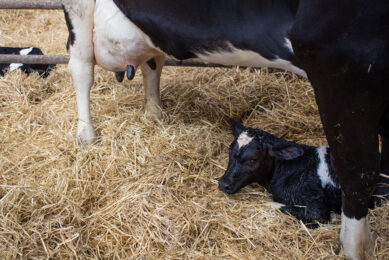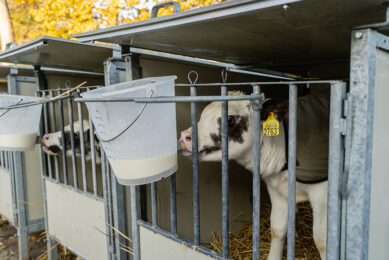LifeStart Calf Symposium unveils scientific discoveries
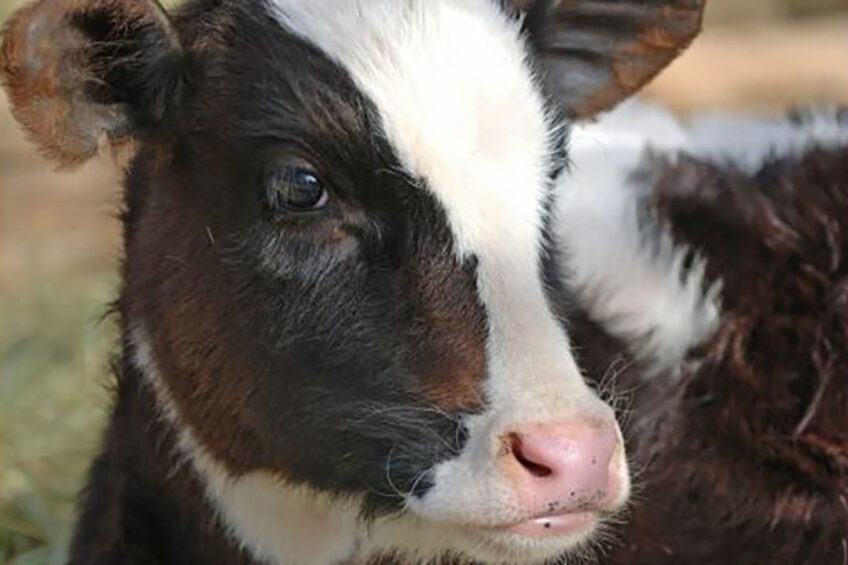
A major discovery in the science of fatty acids has led to the development of a technology that meets calves’ nutritional requirements while nurturing ruminant health, supporting physiological development, and enhancing calf care on the farm. The discovery was unveiled during the 3rd LifeStart Symposium held from 17-18 October in Nottingham, England, and co-hosted by Trouw Nutrition, the livestock feed business of Nutreco, and the University of Nottingham School of Veterinary Medicine and Science.
The new technology allows for milk replacers to be formulated in a way that more closely resembles bovine milk, compared to milk replacers traditionally based on available dairy industry bioproducts. As imbalances in the nutrient profile of conventional milk replacers may disturb the metabolic homeostasis of newborn calves, dietary components such as minerals, osmolality, and fatty acid profile of milk must be managed with care to nurture the calf. With these challenges in mind, scientists studied the role that fatty acids and milk components such as minerals, lactose and protein play in supporting calf health and development.
The research findings shed light on how fatty acids in milk fat act as bioactive agents, sending signals that trigger gut development, help avoid common digestive challenges, and increase feed intake. Findings showing how the composition of milk fat and the macronutrient profile of milk drive metabolic processes in young ruminants led to the development of a technology that closely mimics the composition of whole bovine milk. Benefits of providing a milk replacer that comes closer to nature include enhanced calf health and growth, reduced age to first calving, increased milk production, and fewer replacement calves required to maintain herd size.
Milk composition insights lead to a paradigm shift in calf feeding
The researchers’ discovery of the role that milk fat plays in supporting calves’ metabolic processes, organ and tissue development, and bodyweight gain makes a compelling case for transitioning away from conventional calf feeding strategies that seek to encourage earlier starter feed intake.
Research findings further show that the composition of nutrients is a critical factor in nurturing the development of calves. Commercial milk replacers are typically formulated with higher levels of lactose and lower levels of fat compared to whole bovine milk.
Dr Michael Steele, professor at the University of Guelph, and Juliette Wilms, PhD candidate, Trouw Nutrition, presented findings from research that compared the health and development of calves fed whole bovine milk powder along with 3 milk replacers based on high-fat, high-lactose, or high-protein formulations.
Differences in the macronutrient profile and composition of high-protein and high-lactose milk replacers resulted in distinct profiles relevant to metabolism and endocrinal functions compared to calves receiving milk. In contrast, there was a lack of difference between cows receiving whole milk or the high-fat milk replacer. Additionally, calves fed the high-fat diet in the first week had higher liver weights suggesting the role milk fat plays in organ development. Applying the research findings to calf nutrition offers a tool to restore biological references and mimic the natural signals in milk that contribute to healthy herds and more efficient dairy production.
Javier Martín-Tereso, PhD, manager of the ruminant team at Trouw Nutrition Research and Development, noted that the findings set the stage for a paradigm shift in calf nutrition. “If you have an alternative tool that closely mirrors the components in milk, you can be more generous in the supply of nutrients to calves, so they are less hungry, setting them up for better growth and a happier life on the farm,” he stated.
The new technology also supports calf care and the public’s desire to know more about how animals are raised on the farm. “No consumer ever asks about the average daily gain — they want to know if the animal had a reasonably good life on the farm,” noted Marina von Keyserlingk, professor at The University of British Columbia, and a speaker at the LifeStart Calf Symposium.
Beyond genetics – Investing in early life
Remarking on opportunities to improve calf health through nutritional interventions, Dr Leonel Leal, team lead of Calf and Heifer Research at Trouw Nutrition, remarked that because the metabolism can be programmed in early life, this life stage offers an opportunity to go beyond genetics and leverage the diet to improve lifetime health.
“The benefits of feeding milk persist beyond the weaning phase,” he said. “The milk allowance is the main driver of gut health during pre and post-weaning, and if you treat calves better, they will pay you back with better lifetime performance.”
Dr Michael Steele summed up the opportunity investing in early life offers farms and stakeholders across the value chain. “The calf is the forgotten hero on the dairy farm. As we see the benefits of investing in early life nutrition, we can nurture calves so that they stay in the herd longer,” he said.
Throughout the symposium, participants engaged with some of the world’s foremost authorities in calf nutrition, rearing, and management. A total of 17 lectures and workshops offered best practices for improving the sustainability of dairy systems, optimising calf care, leveraging artificial intelligence, and using predictive modelling to support herd performance, improve farm economics, and optimise calf rearing on the farm. Presenters also shared real-world examples of the returns farms have realised from investing in early-life nutrition. “We’ve learned that we can’t compromise on cow quality when it comes to getting the right performance,” said Professor Albert de Vries of the University of Florida.


